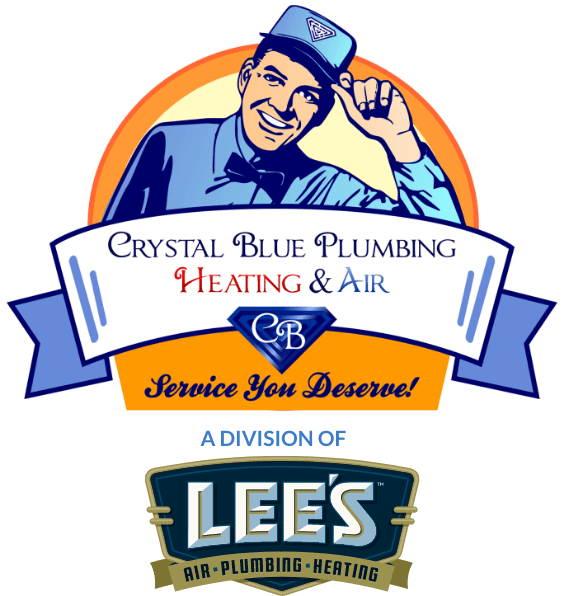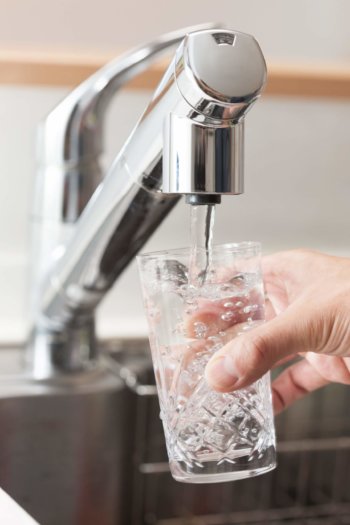6 Factors That Affect Your Water Quality
It’s important to have clean, healthy water in your household or business, but many people are completely unaware of what really factors into water quality. Some of these variables are things you have some control over. Keeping the water you’re using and drinking as pure as possible should be the ultimate goal, and learning about the factors that affect its quality is a great first step towards achieving this end.
1. Pollution in Water Sources
Before your water ever makes its way to your home or business, it typically originates from a natural freshwater source in your area. Your water company pulls it from this source and then sends it your way. However, it’s entirely possible for these water sources to become polluted with substances like oil, grease, pesticides, detergents, trash, and much more. This is usually caused by people dumping these substances down storm drains or by using their toilets to flush things that they shouldn’t.
Water companies do make an effort to treat these water sources and neutralize this pollution, but these actions aren’t always completely effective. If you’re in an area where this type of pollution is more prominent, it’s going to negatively affect your water quality.
2. Your Water Usage
The amount of water used in your home or even your community can have a major effect on water quality. Unless you have a private well on your property, you are likely sharing your water supply with other households in your neighborhood. Typically, your home’s or your area’s sewage and wastewater treatment systems will only be equipped to effectively manage a certain amount of water usage.
When you’re going through more water than these systems are prepared for, it can result in more pollution ending up in your water. If your usage is negatively affecting your water quality, you’ll either want to slow down on that usage or invest in an upgrade for your sewage and/or wastewater treatment systems.
3. Sediment in the Water
Roughly 85% of homeowners in the United States live in areas where calcium and magnesium can be found in the water supply. These minerals are picked up by the water as it flows through the ground, and they can cause a lot of issues for your household and your personal health.
Water that contains these minerals is referred to as hard water, and it can be very damaging to your plumbing and appliances. This is because the magnesium and calcium get left behind in the form of scale buildup, which can cause clogs and damage to your pipes, dishwasher, laundry machine, and water heater.
This hard water is also bad for your hair, skin, and clothing. The minerals in the water remove the natural oil from your hair and skin, which causes it to feel dry, itchy, and irritated. Additionally, washing your clothes with this mineral-rich water will dull their color and, in some cases, even leave stains behind. The good news is that you can combat this issue in your home or business by investing in a water softening system. These systems are able to remove the ions of calcium and magnesium from your water and replace them with less-damaging ions.
4. Your Water Heater
The water heater is one appliance that many homeowners take for granted. However, if it’s not cared for properly, your water heater can cause certain bacteria to end up in your water supply.
For one thing, you should make a habit of draining your water heater at least once each year. This greatly reduces the chance of having a severe buildup of sediment or polluting bacteria. Going long stretches of time without using your water heater can result in microorganisms thriving as well, which can cause unfortunate odors and sometimes affect your water quality.
Water heaters have a component called an anode rod that is responsible for protecting the appliance from corrosion. If this part becomes worn out or defective, corrosion will start to develop. Over time, this corrosion can lead to rusting, which can result in bacteria ending up in your water supply.
One way to fight the development of bacteria in your water heater is to raise the water temperature. If you adjust the temperature to around 140 degrees Fahrenheit, it should help limit bacterial growth. It’s also a good idea to have a trained professional inspect and clean the appliance every couple of years.
5. Your Plumbing and Fixtures
The condition of your pipes and plumbing fixtures can also affect water quality. For one thing, any malfunction that occurs with your plumbing system can lead to worsened water quality.
If your plumbing is old and outdated, there’s a good chance it contains lead. Over time, and especially as your plumbing starts to deteriorate, unhealthy amounts of this lead can end up seeping into your water. If the water running through your pipes is acidic, that can also speed up the corrosion process and further increase the amount of lead that’s present.
However, it isn’t only lead plumbing fixtures that cause water pollution. In some cases, brass or chrome-plated faucets can cause your water to become contaminated as the metal gradually leaks into it. This contamination is usually negligible except for extreme cases. In general, having your pipes and other plumbing fixtures professionally inspected regularly is the best thing you can do to minimize this type of contamination.
6. Harmful Microorganisms
Although it’s not especially common, it is possible that your area’s water supply could contain certain harmful microorganisms. Although it’s far more likely when water isn’t being treated properly or consistently, certain bacteria, such as E. coli, salmonella, and shigella, may be present. These microorganisms can result in very serious illnesses when they exist in your drinking water. I
f you or anyone else in your household is noticing symptoms like nausea or diarrhea, it could mean that these bacteria are present in your local water supply. This is one reason that many people choose to purchase water filtration systems for their homes and businesses. Even if your water supply isn’t treated well enough, a good water filter should be able to keep you from using or ingesting highly polluted water.
At Crystal Blue Plumbing Heating & Air, we have been a reliable provider of plumbing, heating, cooling and indoor air quality services in the Sacramento, CA, area since 1976. We also offer a wide variety of other quality options, such as air purification, UV lights, boilers, ductwork, and more. Our technicians and plumbers go above and beyond to meet the individual needs of our customers. We are dedicated to offering comprehensive comfort services to the residents of our area, and you can trust our team for high-quality results, high-caliber products, and unbeatable customer service.
Call us up at Crystal Blue Plumbing Heating & Air today to learn more about our services or to schedule an appointment.







